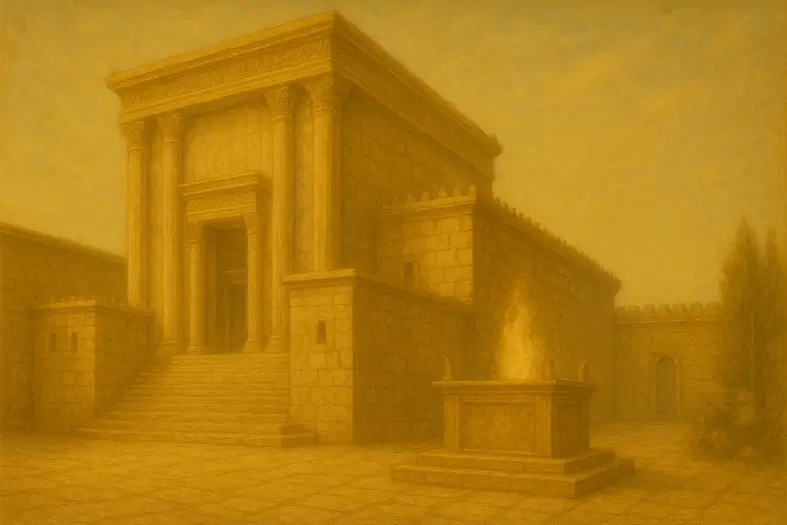


It is forbidden to offer sacrifices outside the Temple courtyard; they are valid only in Hashem’s chosen place.
This mitzvah prohibits bringing any korban — whether burnt, sin, guilt, or peace offering — outside the Temple courtyard. While Mitzvah 371 forbids slaughter outside, this mitzvah forbids hakravah (the act of offering, i.e., sprinkling the blood or burning the fats) outside.
The Talmud (Zevachim 106a) distinguishes between shechitah (slaughter) and hakravah (offering), teaching that both acts outside the Mikdash are punishable by karet. Rambam codifies that all sacrificial acts — from receiving the blood to burning — must occur solely in the Temple. Sefer HaChinuch emphasizes that this mitzvah protects Israel from idolatry by preventing imitation of pagan practices. Rashi notes that the Torah repeats this law to stress its severity. Ramban connects this mitzvah to covenantal fidelity, showing that offering outside undermines Hashem’s dwelling among His people.
Commentary & Classical Explanation:


Represents the concept of spiritual intentionality, purity, and sanctity—set apart for a higher purpose.
Concerns the Beit HaMikdash, korbanot (offerings), and priestly service.
Represents Emunah—the deep, inner trust in Hashem’s presence, oneness, and constant involvement in our lives. This badge symbolizes a heartfelt connection to G-d, rooted in belief even when we cannot see. It is the emotional and spiritual core of many mitzvot.
Mitzvot that prohibit worship of false gods and practices associated with idol worship.
Signifies awe and reverence toward Hashem—living with awareness of His greatness and presence.
Mitzvot that uphold fairness, honesty, and moral responsibility. Justice is kindness structured — ensuring that society reflects G-d’s order through truth, equity, and accountability.
Mitzvot that strengthen communal life — showing up, participating, supporting, and belonging. Community is where holiness is shared, prayers are multiplied, and responsibility becomes collective.
Tied to the eternal covenant between G‑d and the Jewish people, including signs like brit milah and Shabbat.
Mitzvot that define and deepen the relationship between a person and their Creator. These include commandments involving belief, prayer, Shabbat, festivals, sacrifices, and personal holiness — expressions of devotion rooted in divine connection.

Dive into mitzvos, prayer, and Torah study—each section curated to help you learn, reflect, and live with intention. New insights are added regularly, creating an evolving space for spiritual growth.

Explore the 613 mitzvos and uncover the meaning behind each one. Discover practical ways to integrate them into your daily life with insights, sources, and guided reflection.

Learn the structure, depth, and spiritual intent behind Jewish prayer. Dive into morning blessings, Shema, Amidah, and more—with tools to enrich your daily connection.

Each week’s parsha offers timeless wisdom and modern relevance. Explore summaries, key themes, and mitzvah connections to deepen your understanding of the Torah cycle.